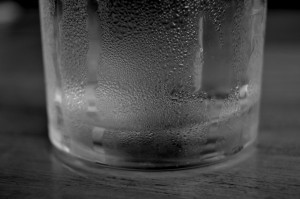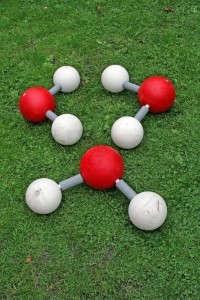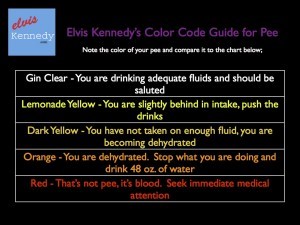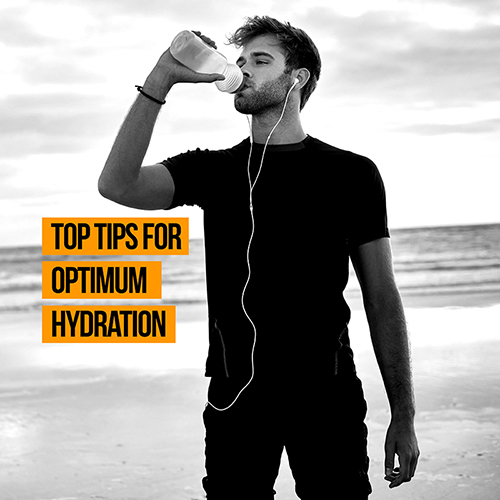Having learnt from first-hand experience how dangerous dehydration can be, Toby Cryne discusses how water benefits you during exercise, what happens during dehydration and how you can keep on top of your h20 levels all day long.
How to Stay Hydrated During Exercise
Believe it or not, water is probably the most important natural element on the earth. Covering just over 71% of the Earth’s surface and making up a huge 65% of the human body, the transparent fluid is vital for all forms of life on Earth. As a result, water is by default, the most important part of exercise also.
When I first started training nearly ten years ago, I would often overlook h2o in favour of a kitchen counterpart that nourished my taste buds; milk. And though full of calories, I could never quite understand the reasoning behind my lack of endurance, irritable mood following exercise and general lethargy. Strangely enough, it wasn’t until I started seriously lifting weights as a young adult that I realised just how important optimum hydration is. Needless to say, I learnt the hard way after collapsing during a leg session, dropping the weights on me in the process.

As a runner and triathlete in my adult years, water has become the single most important part of my nutritional plan. Simply put, the body can run for quite some time without input of calories by utilising the fat stores – but once you’re dehydrated, all sorts of trouble awaits you. Whilst training Muay Thai in Thailand a short while ago, the humidity would rise to sufferable conditions along with the heat. As a result, it wasn’t uncommon on training days for me to get through 6L of water in four hours – and I still lost a tonne of water weight.
Disclaimer: The following information should not be used as a replacement for medical advice. If you are feeling the effects of severe dehydration, see a doctor as soon as you can.
What Is Water
To understand why we as human beings need water, we first need to understand exactly what it is. Let’s slip in to scientific mode for a bit. Water or, hydrogen dioxide is a crazily malleable substance that is the only substance that occurs naturally as a liquid, solid and a gas.
In its purest form the colourless and (nearly) tasteless element contains one oxygen atom to two hydrogen atoms, hence the name h2o. The molecule is bound by two electrons and is positively charged near the hydrogen atoms and negatively near the oxygen atoms. As a result, the two atoms naturally attract and create a hydrogen bond – which is why it is denser as a liquid than a solid.
Confused? It looks a little like this:

The human body uses water in a number of ways in order to remain functional during day to day activities. As the body is roughly made up of 65% water and the brain is nearly 70% water, replenishment of lost stores is vital in order to survive.
Water has a number of functions in the body including; lubricating joints, nourishing the brain, spinal cord and tissue, core temperature regulation, the removal of waste products through perspiration, urine and excretion. It is therefore no surprise that the NHS currently recommends 1.5 to 2L of the stuff each day.
The Causes and Effects of Dehydration
Dehydration is an exceptionally dangerous state in which the body finds itself when one loses more fluid than it takes in. And yes, if left untreated it can kill you. Symptoms of dehydration can occur after exercise, alcohol consumption and even from mere daily activity. As the body is constantly replenishing the organs with water in order to regulate core temperature and excrete waste products, dehydration can occur after only a few hours of lacking fluids.
The Symptoms of Dehydration
Dehydration can occur after only a short while of physical exertion or a short time without topping up the necessary amounts that the body needs.
Mild Dehydration is a state of water loss that can normally be fixed by increasing h20 supplies in the body through the intake of fluids or high water content foods.
Symptoms include:
- Dry mouth
- Tiredness
- Thirst
- Decreased urine output – darker than usual
- Dry skin
- Headache
- Constipation
- Dizziness
Use the urine chart below to see how hydrated you really are:

Severe Dehydration as the name suggests is a state whereby one finds oneself in need of medical action. This can occur gradually due to a constant loss in fluids or as a result of medical conditions or starvation.
Symptoms include:
- Extreme thirst
- Extreme lethargy
- Extremely dry mouth and skin
- Little or no urination – exceptionally dark or brown
- Sunken eyes
- Skin lacks elasticity
- Low blood pressure
- Rapid heartbeat
- Rapid breathing
- No tears when crying
- Fever
- Delirium or unconsciousness
It is important to note that though dehydration occurs as a result of a miscalculation, often it can occur in those that have previous illness which create constant excretions such as people suffering from colitis or other excretion based ailments. Dehydration is often a cause for the hospitalisation of sufferers of eating disorders such as bulimia or anorexia due to the constant excretion of fluids.
How to Stay Healthy and Hydrated
In order to remain in optimum function for your workout and your day, it is often suggested by medical professional that one takes in between 1.5 to 2L of the clear stuff a day. But fear not, water shunner, you can stay hydrated without chugging huge bottles of Evian or constantly refilling your cup at the water cooler. As water is in, pretty much, everything, consuming foods that are high in water also keep you hydrated and healthy thorough the day.
The following is a list of our favourite foods for hydration, and guess what? They’re all fruits and veggies which adds the added bonus of being a great source of fibres, healthy sugars and general cell nourishing goodness:
- Cucumber – 96.7% water
- Celery – 95.4% water
- Tomatoes – 94.5% water
- Watermelon – 91.5% water
- Strawberries – 91% water
- Broccoli – 90.7% water
- Grapefruit – 90.5% water
- Baby carrots – 90.4% water
Water Intake during Exercise
The human body differs from most other animals in the animal kingdom by way of how it decreases core temperature. Whereas most animals will lower temperature through panting in the mouth, the human being rids excess heat via sweat glands in the skin. As a result, the agent which carries this heat out, water is one of the first things that depletes during exercise – no matter how vigorous.
It has been noted in various scientific studies the degree to which inadequate water intake can hinder performance. A study conducted by Amanda Carlson, Director of Performance Nutrition for Athletes’ Performance, found that losing a mere 2% of body weight in fluid can decrease performance by up to 25%. And as water is a major component in chemical reactions in the body, it stands to reason that even slight dehydration can also hinder recovery and lead to injury or illness.
How to Calculate Your Water Needs
Though dehydration can be exceptionally debilitating and even fatal, it is not common for one to actually overhydrate unless suffering from a specific medical condition. However, nobody wants to be facing the cubicle wall all day. As a result, a common technique used by athletes is to weigh themselves before and after exercise and replace each pound of weight lost with around half a litre of water – though more is obviously best.
Pay attention to your hydration levels during exercise as losing too much water will result in dizziness, muscle cramp and fatigue.


